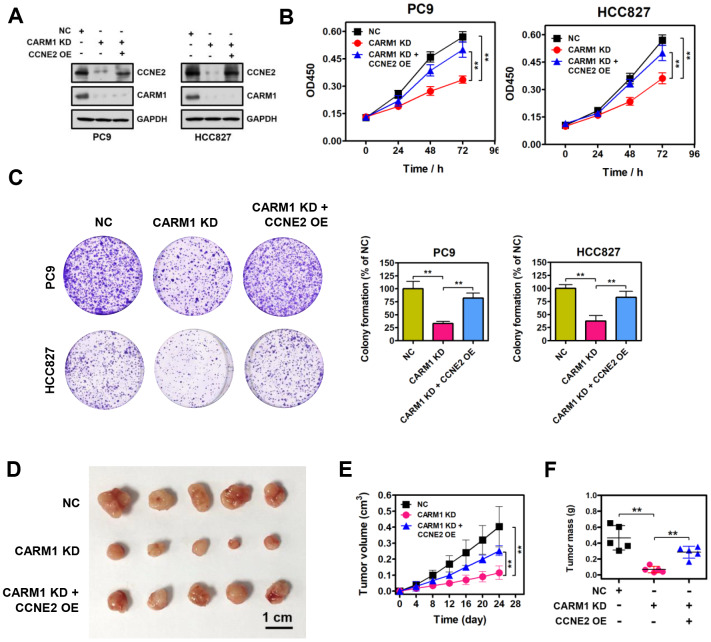Figure 5.
Restoration of CCNE2 expression abrogates the proliferation inhibition caused by CARM1 knockdown. (A) The restoration of CCNE2 in CARM1-depleted PC9 and HCC827 cells was verified by Western blot. GAPDH was used as loading control. (B) Cell proliferation capacities of NC, CARM1 KD (CARM1 shRNA) and CARM1 KD + CCNE2 OE (CCNE2 overexpression)-treated PC9 and HCC827 cells were determined by CCK-8 assays. The data were presented as means ± SDs of three independent experiments; **P < 0.01. (C) Colony-formative abilities of NC, CARM1 KD and CARM1 KD + CCNE2 OE-treated PC9 and HCC827 cells were determined by colony-formation assays. Right panel, the relative colony-formative abilities (% of NC) were quantified. The data were shown as means ± SDs of three independent experiments; **P < 0.01. (D) NC, CARM1 KD and CARM1 KD + CCNE2 OE-treated PC9 cells were subcutaneously injected into the flank of nude mice. Representative images of xenograft tumors excised from mice. (E) Tumor growth curves of NC, CARM1 KD and CARM1 KD + CCNE2 OE-treated PC9 cells in nude mice; n =5, **P < 0.01. (F) Tumor weights of NC, CARM1 KD and CARM1 KD + CCNE2 OE-treated PC9 xenograft tumors excised from mice; n =5, **P < 0.01.

